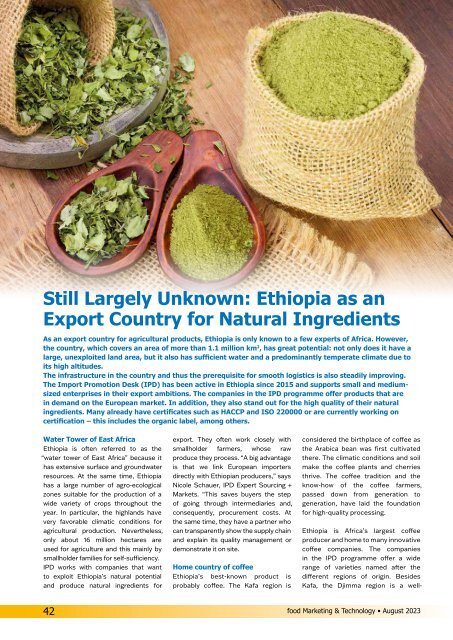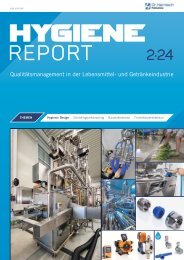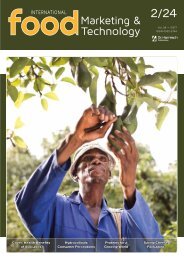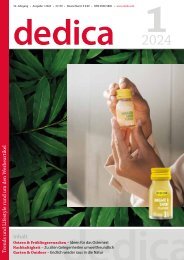food Marketing - Technology 4/2023
food Marketing & Technology is the international magazine for executives and specialists in the food industry.
food Marketing & Technology is the international magazine for executives and specialists in the food industry.
Create successful ePaper yourself
Turn your PDF publications into a flip-book with our unique Google optimized e-Paper software.
<strong>Marketing</strong><br />
Still Largely Unknown: Ethiopia as an<br />
Export Country for Natural Ingredients<br />
As an export country for agricultural products, Ethiopia is only known to a few experts of Africa. However,<br />
the country, which covers an area of more than 1.1 million km 2 , has great potential: not only does it have a<br />
large, unexploited land area, but it also has sufficient water and a predominantly temperate climate due to<br />
its high altitudes.<br />
The infrastructure in the country and thus the prerequisite for smooth logistics is also steadily improving.<br />
The Import Promotion Desk (IPD) has been active in Ethiopia since 2015 and supports small and mediumsized<br />
enterprises in their export ambitions. The companies in the IPD programme offer products that are<br />
in demand on the European market. In addition, they also stand out for the high quality of their natural<br />
ingredients. Many already have certificates such as HACCP and ISO 220000 or are currently working on<br />
certification – this includes the organic label, among others.<br />
Water Tower of East Africa<br />
Ethiopia is often referred to as the<br />
“water tower of East Africa” because it<br />
has extensive surface and groundwater<br />
resources. At the same time, Ethiopia<br />
has a large number of agro-ecological<br />
zones suitable for the production of a<br />
wide variety of crops throughout the<br />
year. In particular, the highlands have<br />
very favorable climatic conditions for<br />
agricultural production. Nevertheless,<br />
only about 16 million hectares are<br />
used for agriculture and this mainly by<br />
smallholder families for self-sufficiency.<br />
IPD works with companies that want<br />
to exploit Ethiopia’s natural potential<br />
and produce natural ingredients for<br />
export. They often work closely with<br />
smallholder farmers, whose raw<br />
produce they process. “A big advantage<br />
is that we link European importers<br />
directly with Ethiopian producers,” says<br />
Nicole Schauer, IPD Expert Sourcing +<br />
Markets. “This saves buyers the step<br />
of going through intermediaries and,<br />
consequently, procurement costs. At<br />
the same time, they have a partner who<br />
can transparently show the supply chain<br />
and explain its quality management or<br />
demonstrate it on site.<br />
Home country of coffee<br />
Ethiopia’s best-known product is<br />
probably coffee. The Kafa region is<br />
considered the birthplace of coffee as<br />
the Arabica bean was first cultivated<br />
there. The climatic conditions and soil<br />
make the coffee plants and cherries<br />
thrive. The coffee tradition and the<br />
know-how of the coffee farmers,<br />
passed down from generation to<br />
generation, have laid the foundation<br />
for high-quality processing.<br />
Ethiopia is Africa’s largest coffee<br />
producer and home to many innovative<br />
coffee companies. The companies<br />
in the IPD programme offer a wide<br />
range of varieties named after the<br />
different regions of origin. Besides<br />
Kafa, the Djimma region is a well-<br />
42 <strong>food</strong> <strong>Marketing</strong> & <strong>Technology</strong> • August <strong>2023</strong>


















